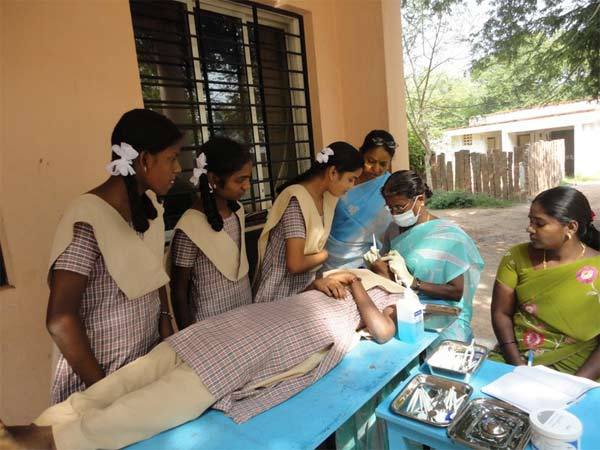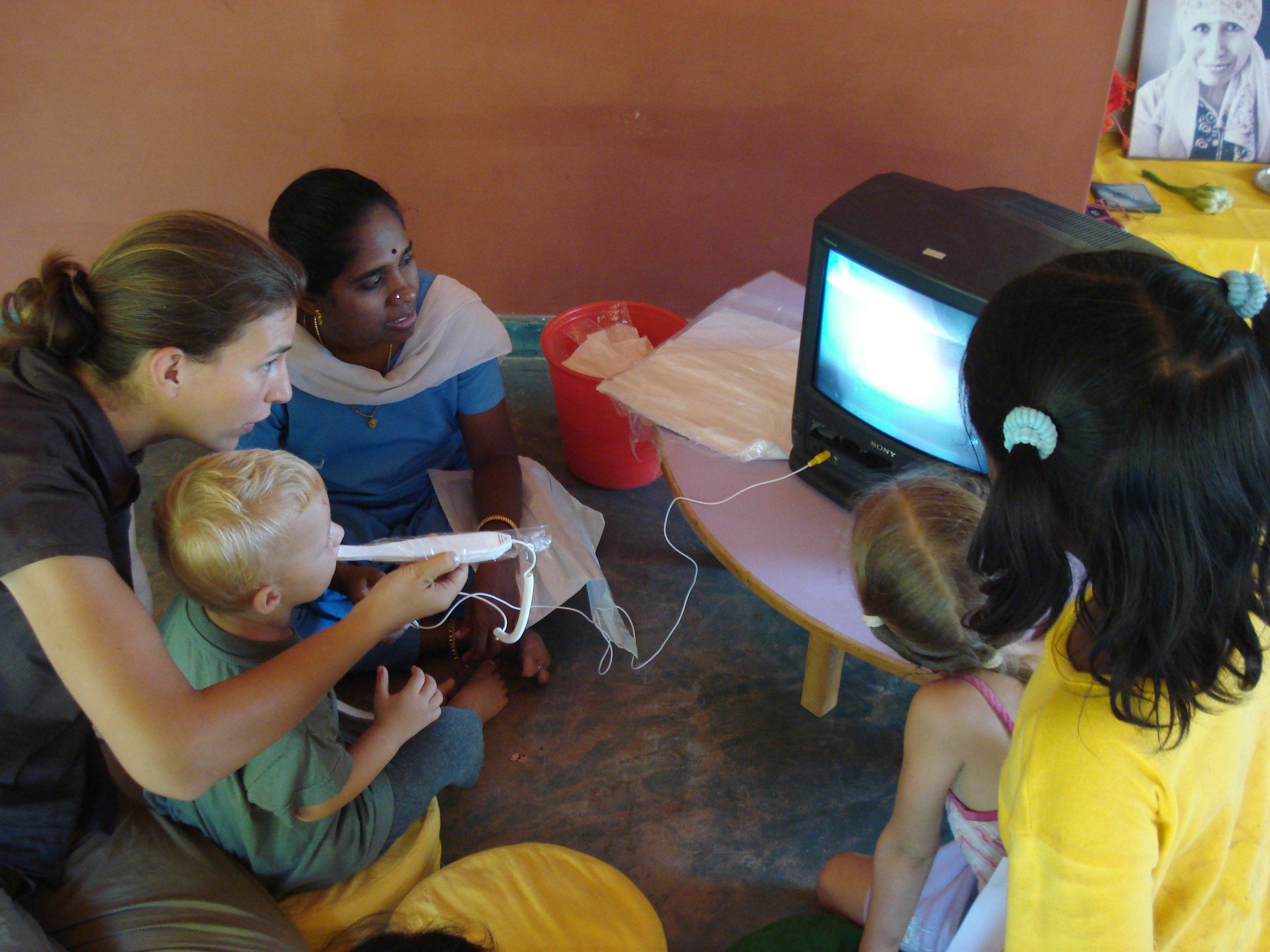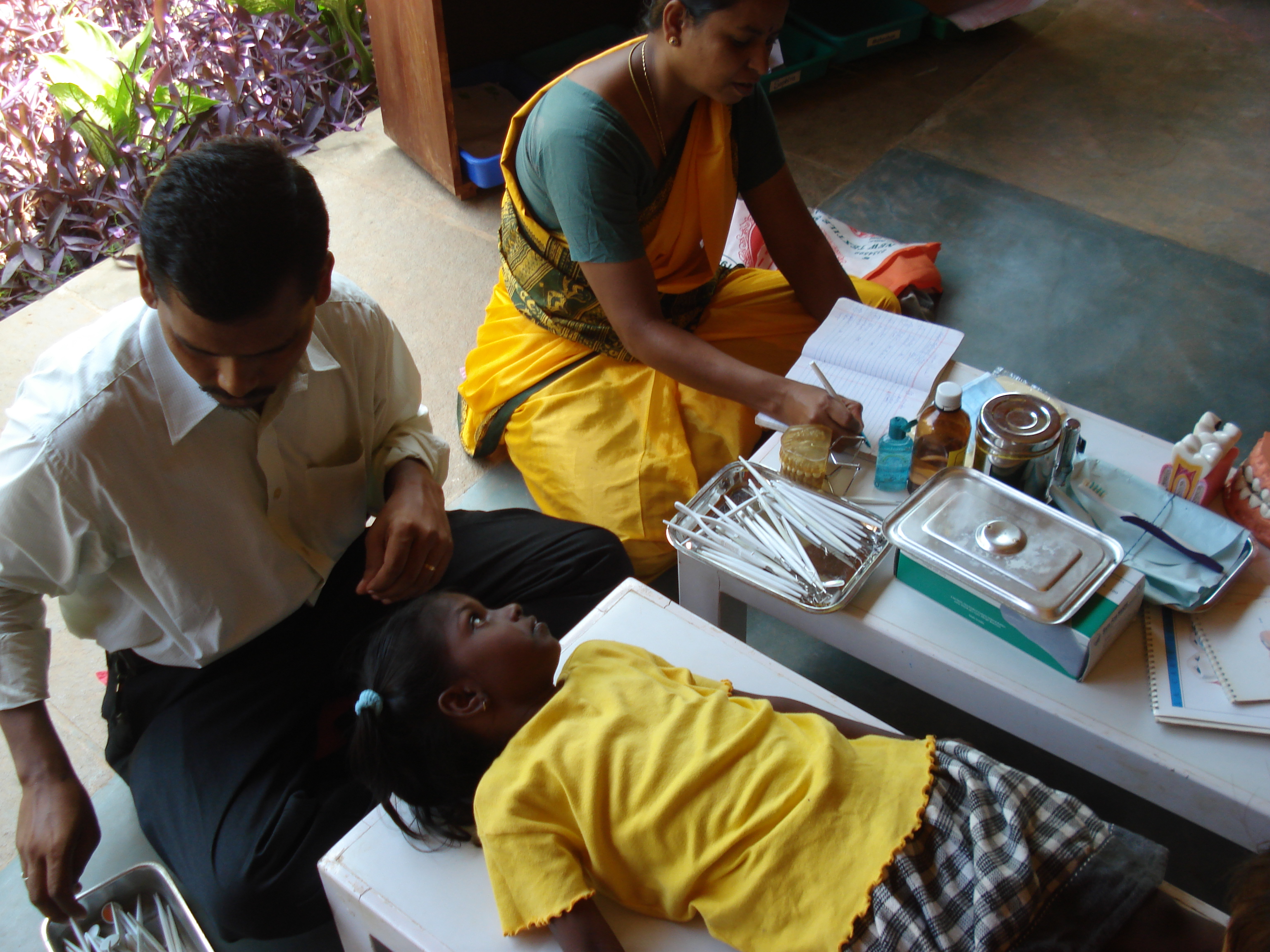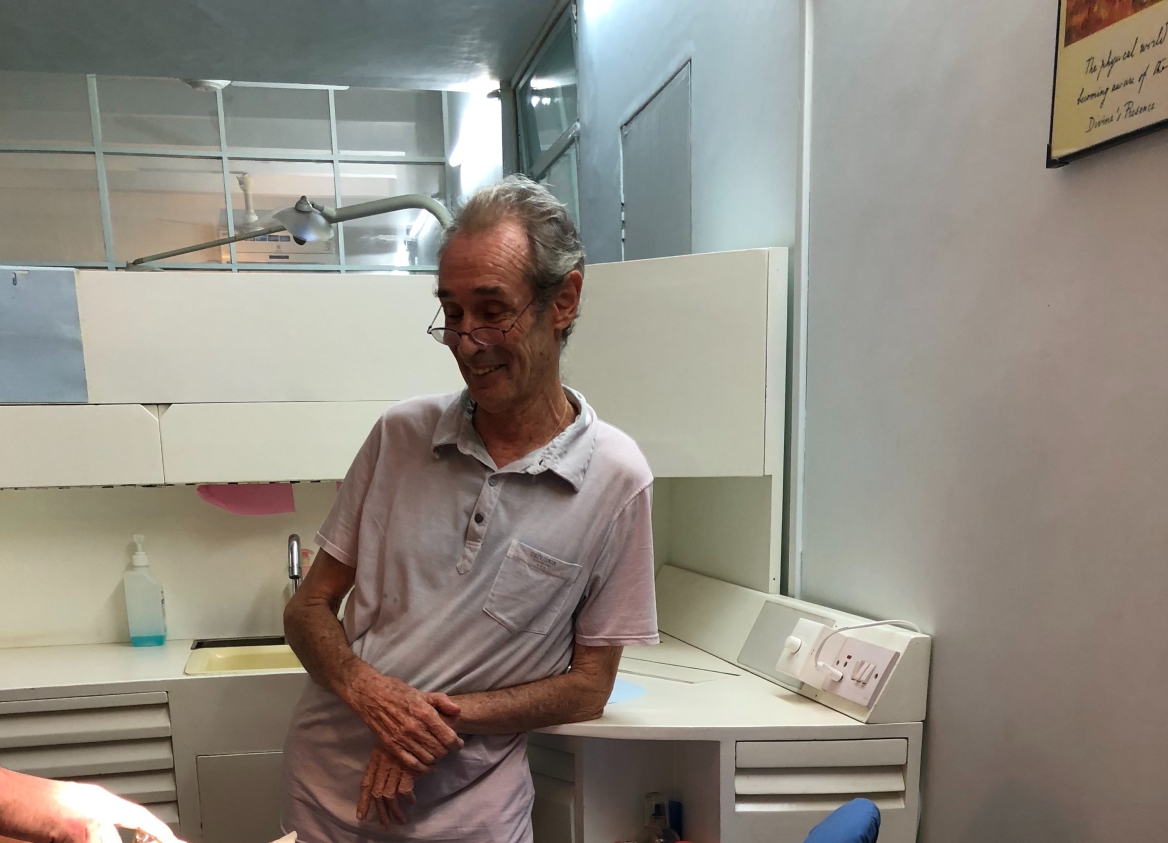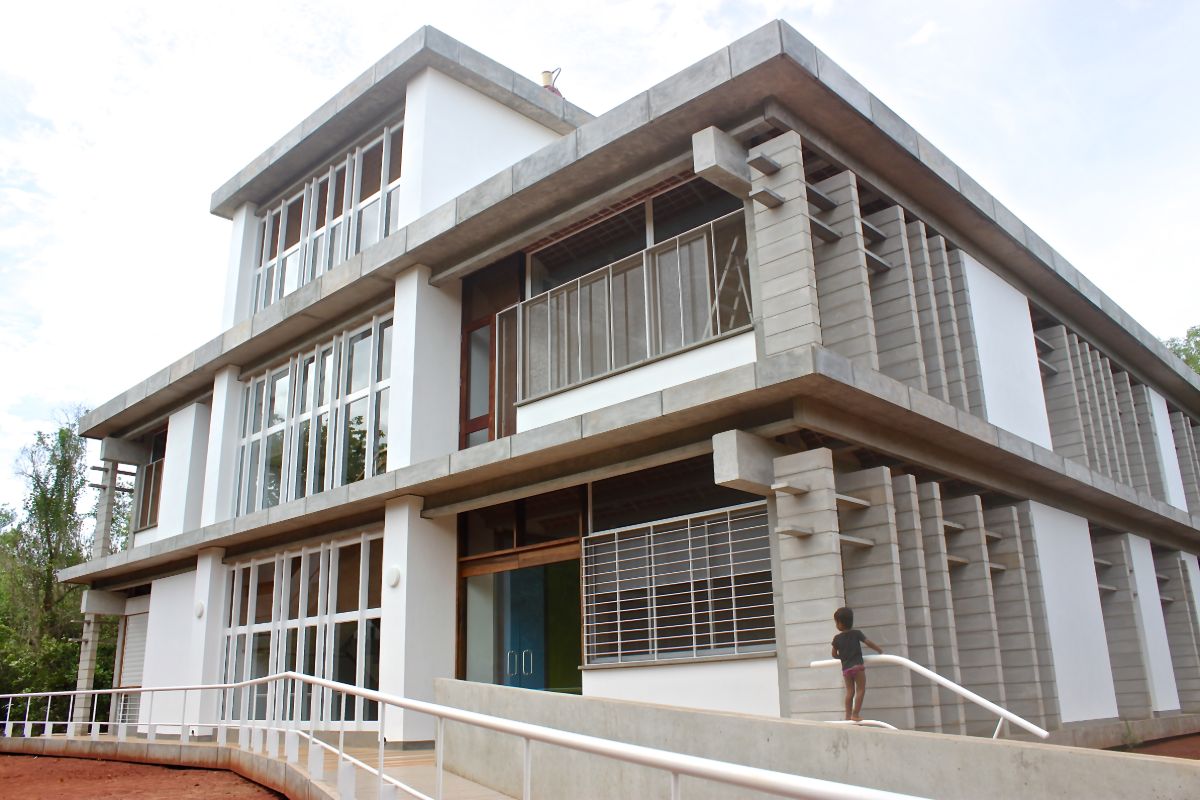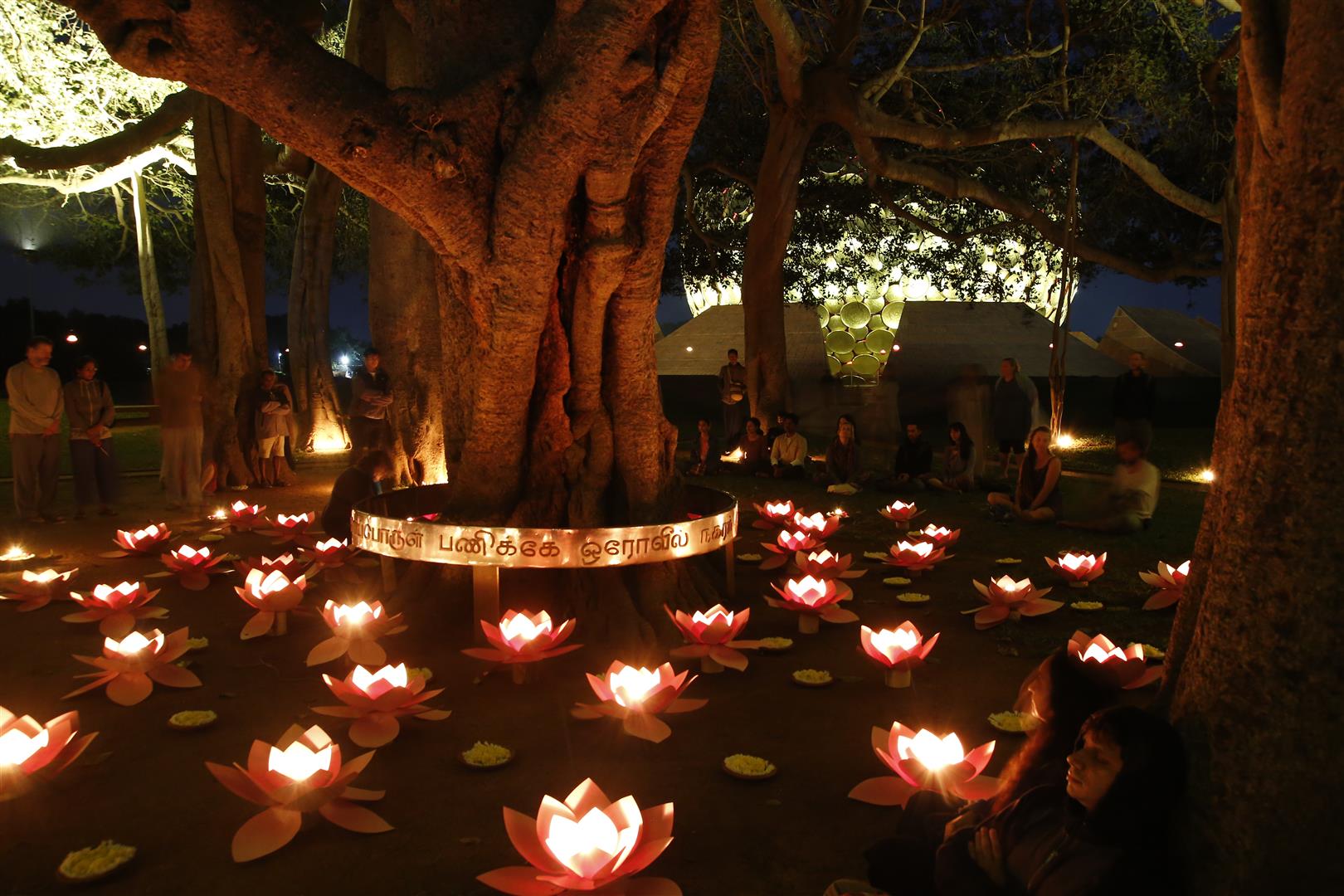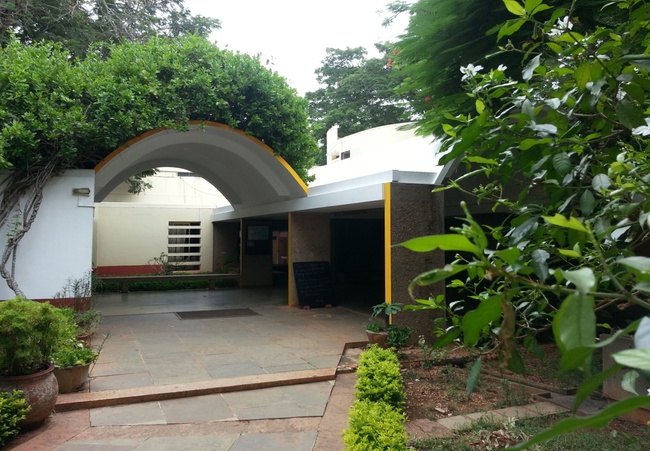Auroville Dental Centre
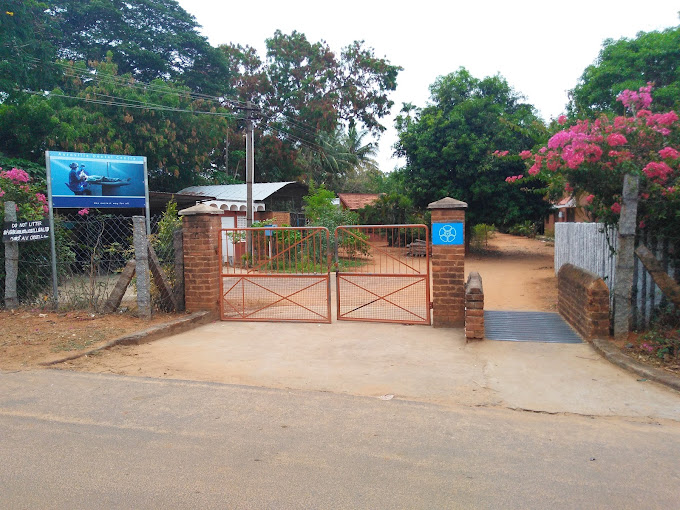
Auroville Dental Centre (AVDC), located at Protection, provides dental care for Aurovilians, Newcomers and guests. The dental centre also runs an innovative social work programme called "Auroville Dental Centre for Education Research and Rural Action (ADCERRA)" to promote rural dental health through education, check-ups and basic treatment.
What is Auroville Dental Health Centre?
Auroville Dental Health Centre was founded by Jaques Verré, a French dental surgeon who established this dental health centre in 1982. In 1992, Dr Jaques Verré partnered with Mrs Suriyagandhi in order to promote preventive dental health care.
Mrs Suriyagandhi, the head village nurse in the bioregion, assisted in developing and coordinating oral care methods through the creation of ADCERRA (Auroville Dental Centre for Education Research and Rural Action). The role of the ADCERRA is to educate the villagers on preventive oral care and to offer dental health check-ups in rural settlements through the implementation of the “universal model”.
Presently, on an annual basis, we treat approximately 600 Aurovilians and 100 people from Pondicherry and elsewhere. As Aurovilians come 4 times a year on average, it means that we provide 2400 sessions/year or see 200 Aurovilian cases per month. Children are checked regularly at schools and follow a preventive programme to reduce the need of treatment and further costs. There are now rarely big emergencies or acute cases as the awareness and general level of hygiene, in general, is higher than before. Auroville is in the process of organising a collective insurance system that will enable all Aurovilians to get free help for all types of medical and dental treatment, including prosthesis (within the limits of our actual capacities)! While the rural programmes are sponsored by foreign donors and friends, the dental clinic of the Health Centre runs through contributions and is self-sufficient.
- Treatment for the surrounding population in the dental clinic of the Health Centre (4,000 cases/year) of preventive care in 17 schools.
- Dental training for the local village women to become Dental Health Workers (or reinforcing their skills) through a Universal Method.
- Dental check-ups for school children in priority.
- Manual scaling.
- Small fillings using only hand instruments (ART Technique).
- Transport by van of the referred patients who need more complex treatment by the dentist in Auroville Health Centre - as there are no bus facilities in the rural areas - ensuring also the follow-ups.
- Educating on oral hygiene so as to prevent dental caries.
- Providing basic care at the beginning to avoid complicated and costly treatment that is unaffordable and/or unreachable to most of the rural population!
- Education in oral health for teachers, children and parents.
- Basic treatment in 13 sub-centres with hand instruments only, like scaling and 'ART technique'.
There are three fundamental keys to accelerate self-skill acquisition:
Zero Concept: the Concept of Zero comes from India 2000 years ago but its application in dentistry is new.
- The Zero (Ø) is a universally accepted basic reference.
- Zero (Ø) represents symbolically Health.
- Ø Health is the goal or absence of need of care.
Proprioception is the feel of positions and movements within the body when the eyes are closed. It is common to all human beings and optimizes the use of the body of the performer for the best accuracy.
Global terms which are universal for precise and easy communication to avoid regional descriptive terms:
- break linguistic barriers,
- shorten the time reaction of the brain,
- less risk of errors.
For more details on Zero Concept and global communication please visit:
Promoted by the WHO in 90 developing countries, this painless and simple manual technique is also at the disposal of non-professionals, even in the most basic conditions where no electricity or running water is available.
They remove early caries with no drilling and fill cavities with a glass ionomer cement which glues to the cavity and releases fluoride - a substance known to stop further decaying process.
Stopping early caries will avoid more costly dental care in a clinic - unaffordable to most of the poor populations - as well as the related health problems due to a lack of hygiene and malnutrition.
The ART technique is performed by local 'dental nurses' in the villages, where there is as yet no complete equipment (and sometimes no water, no electricity). The nurses clean the beginning of small cavities using hand instruments only and fill them with a special cement (glass-ionomer) that releases fluoride to stop further decay. This technique, promoted by WHO, is used in more than 90 developing countries, solving problems of unaffordable or out-of-reach treatment.
This model of organisation and work in disadvantaged rural areas has been functioning since 1994 when the first sub-centre started. Its decentralised set-up, with sub-centres and training facilities in the local villages, can be replicated in rural areas elsewhere in India, or anywhere else in the world in similar conditions, with a drastic reduction in health needs and costs.
Main Dental Clinic
- 3 dentists (2 French AV + 1 Indian)
- 1 hygienist (Indian AV)
- 3 assistants (2 Indian AV + 1 Indian)
- 3 prothesists (French AV, Italian AV, Tibetan AV)
- 2 technicians for maintenance (Indian AV)
- 1 administrator (AV French)
- 1 secretary (AV Indian)
- 1 accountant (Indian)
- 2 cleaners (Indian)
Dental Clinic at the Auroville Health Centre
- 1 dentist (Indian)
- 1 assistant (AV Indian)
- 1 technician (AV Russian)
- 1 cleaner (Indian)
Sub-Centres
- 1 dentist (Indian)
- 26 community health workers (Indian)
- 1 driver minibus (Indian)
Total = 49 persons (13 Aurovilians and 36 salaried)
Get in Touch
0413-262-2265 or 262-2007
Monday to Saturday 9 am to 1 pm
Monday to Friday 2 pm to 4:30 pm
See Also
